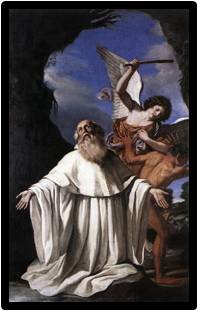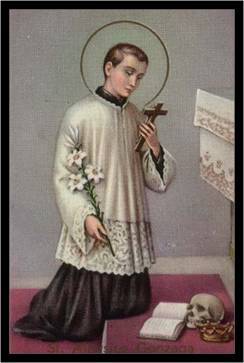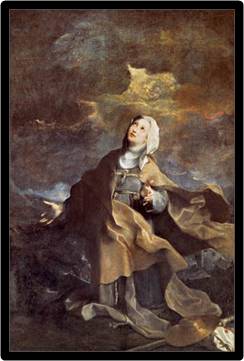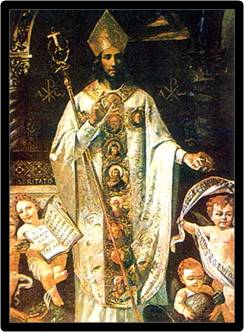JUNE 19 - ST. ROMUALD

Romuald, an Italian nobleman, was born at Ravenna in Italy. He spent a wild youth in luxury and laziness. Then, when he was twenty, he was shocked to see his father kill a man in a duel.
Romuald went to a Benedictine monastery with a stong wish to set his own life straight. He also wanted to do penance for his father’s crime. The lifestyle at the monastery was completely new to Romuald and he was impressed by the good example of many of the monks.
He soon decided to become a monk and asked a good hermit named Marinus to teach him how to become holy. Both Marinus and Romuald tried to spend each day praising and loving God. Romuald’s father Sergius came to visit and experience his son’s new way of life.
Sergius was immediately struck by the simplicity and spirit of self-sacrifice. He realized that there had to be great happiness in the monastery because his son freely chose to stay there. That was all Sergius needed. He gave up his wealth and followed his son to spend the rest of his life as a monk, doing penance for his sins and living a life pleasing to God.
Romuald then began the Camaldolese Benedictine order. He traveled around Italy starting hermitages and monasteries. Wherever he went, he gave his monks a wonderful example of penance. For a whole year, all he ate each day was a bit of boiled beans. Then for three years, he ate only the little food he grew himself. Through these sacrifices Romuald grew closer to God.
Romuald died on June 19, 1027, at the monastery of Valdi-Castro. He was alone in his cell and passed away quietly, no doubt whispering his favorite prayer: “Oh, my sweet Jesus! God of my heart! Delight of pure souls! The object of all my desires!”



